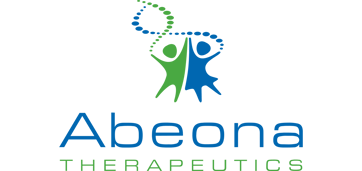1 min read
Abeona Therapeutics, Inc. is a fully-integrated gene and cell therapy company at the forefront of the rapidly-advancing field of genetic medicine. Their late-stage candidate, EB-101, is an autologous, ex-vivo, gene-corrected cell therapy poised to enter a Phase 3 clinical trial for Recessive Dystrophic Epidermolysis Bullosa (RDEB).
Read this case study to learn how Alcami's extensive experience with small and large molecule development services, regulatory compliance, and specialty techniques helpedensure the quality, safety, and efficacy of raw materials used in Abeona's EB-101 manufacturing batches.

CLIENT PROFILE
Abeona Therapeutics, Inc. (Nasdaq: ABEO) is a fully-integrated gene and cell therapy company at the forefront of the rapidly-advancing field of genetic medicine. The Company’s expertise across the R&D, manufacture, and discovery of novel gene and cell therapies has it uniquely positioned for success. Abeona is underpinned by its fully-operational, cGMP-compliant manufacturing facility where the Company is currently producing therapies and vectors used in its clinical and preclinical studies. Abeona’s expertise in R&D and Manufacturing is complemented by its work on the AIM™ Vector gene therapy delivery platform that has produced next-generation AAV capsids with enhanced tissue tropisms. The Company’s strategy to harness the promise of genetic medicine to transform the lives of patients is inspired by its vision, to realize a world where cure is the new standard of care.
PRODUCT BACKGROUND
Abeona’s late-stage candidate, EB-101, is an autologous, ex-vivo, gene-corrected cell therapy poised to enter a Phase 3 clinical trial for Recessive Dystrophic Epidermolysis Bullosa (RDEB). RDEB is a rare connective tissue disorder without an approved treatment in which patients suffer with severe epidermal wounds that impact the length and quality of their lives. People with RDEB have a defect in the COL7A1 gene, leaving them unable to produce Type VII collagen that helps anchor the dermal and epidermal layers of the skin. Treatment with EB-101 involves using gene transfer to deliver COL7A1 genes into an RDEB patient’s own skin cells (keratinocytes) and transplanting them back to the patient to enable normal Type VII collagen expression and skin function. The EB-101 program has been granted Regenerative Medicine Advanced Therapy, Breakthrough Therapy, Orphan Drug, and Rare Pediatric Disease designations from the U.S. Food and Drug Administration (FDA) and Orphan Drug designation from the European Medicines Agency (EMA).
PARTNERING WITH ALCAMI
Alcami’s extensive experience with small and large molecule development services, regulatory compliance, and specialty techniques led to Abeona’s decision to establish a raw materials testing program for EB-101 with the organization. The companies’ partnership process began with an in-depth project assessment to help ensure accurate first time scoping, planning, and execution. Next, Alcami leveraged conclusions obtained by Abeona during their raw materials risk assessment to develop a testing strategy and method establishment plan that would take into consideration material feasibility, ease of use during routine testing, and reasonable project costs.
Alcami’s biopharmaceutical development, analytical testing, and manufacturing team ultimately utilized many different techniques to establish identification methods for 19 raw materials, including AAA, FTIR, EDTA test strips, radial immunodiffusion, SDS-PAGE, UV-Vis, water conductivity, basic chemistry tests, ion chromatography, and LC-UV. The Alcami team met or exceeded all deadlines, realized multiple cost reductions, and delivered a variety of both simple and complex robust methodologies, including those for materials which do not have standard methods in place. Alcami’s timely completion of establishment activities and subsequent routine testing support kept Abeona on track for manufacturing runs required to support their ongoing clinical trials.
CHALLENGES AND SOLUTIONS
Because standardized compendial test methods and regulatory guidance for cell and gene therapies are not yet fully established in the industry, manufacturers like Abeona face unique raw material testing challenges to assure the quality, safety, and efficacy of their drug products. Alcami took those challenges head on, determining the most feasible techniques for materials with more complex matrices, in addition to executing the developments and validations.
Where simpler non-compendial materials such as hexadimethrine bromide were appropriate for traditional identification methodologies such as FTIR, other more complex products required more specialized techniques. For example, certain types of complex media such as Ham’s F12 and Medium 154 and biologically-derived materials like bovine transferrin were not appropriate for FTIR. Alcami developed and validated identification methods utilizing pre-column derivatization with RP-HPLC to produce an amino acid profile for quantitative identification by AAA.
Similarly, a SDS-PAGE identification methodology was established per USP <92> for human recombinant EGF. Although Western Blot was initially the identification test of choice, due to sensitivity constraints associated with the exceptionally low specification limit, it was determined SDS-PAGE was a more effective technique for this material. Less complex techniques such as EDTA testing strips and osmolality were determined to be feasible and appropriate1 for the identification of TrypLE™ Select Enzyme. More traditional methodologies like this were utilized whenever feasible, due to their ease of use and low cost.
Beyond identification method establishment, it was determined certain “higher-risk” materials, based on Abeona's risk assessment, required additional testing for key critical quality attributes. Alcami is currently coordinating with Abeona on this next portion of the program, which will involve tests similar to those already performed. Additional complex techniques may include mass spectrometry, ELISA, enzyme activity assays, analytical ultracentrifugation, and viral agents testing.
WHERE ARE THEY NOW?
Alcami helped ensure the quality, safety, and efficacy of raw materials used in EB-101 manufacturing batches. The company completed all of Abeona’s testing program establishment activities in Q1 2019, and continues to perform routine testing to support ongoing manufacturing needs.
Abeona recommends other cell and gene therapy product manufacturers consider Alcami as a long-term analytical, biotechnology, and microbiological testing partner. The company intends to partner with Alcami for as many outsourced raw materials and finished product lab services testing opportunities as possible.
1 min read
On-Demand Lab Open House
From standalone projects through full-service programs, our laboratories provide solutions to your most complex challenges. Reserve your seat at our...
1 min read
Full-Time Equivalent Programs: Outsourcing Analytical Testing
Alcami’s end-to-end analytical testing platform supports clients’ programs through every stage of a product’s life cycle, from early-phase...


 Alcami
Alcami